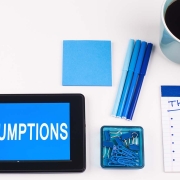How to Love Your Kids More Than Despise Your Ex
There is a family judge in Massachusetts who makes decisions for children of divorce every day. She has a sign hanging on her door that reads:
Do You Hate Your Ex More Than You Love Your Kids?
Provocative question, right?
You might be thinking “of course I don’t — that’s just ridiculous!” Maybe you are even offended by the suggestion.
So why then would a judge so brazenly post this message?
After all, the chances are that if you are separated or divorced you are working hard to do the best you can to protect your kids from any harm stemming from the breakup. Your intentions are probably in the right place.
Sadly, sometimes intentions are not enough. Too often negative unintended harm comes to children of divorce because of the conflict, tension, or even ill will that exists between exes.
How Parents Make the Effects of Divorce on Children of Divorce Even Worse
Since this article started by posing the judge’s provocative statement, let me ask another provocative set of questions: If divorced parents love their kids more than hate their ex, then why do so many co-parents…
- Complain on the phone to their friends about their ex within earshot of the kids, or….
- Fail to buy a Mother’s or Father’s day card for the child to give to the other parent, or…
- Dig for information from their child about the other parent’s social life, or…
- Roll their eyes when the child tells them about something the other parent said or did, or…
- Ask the child to choose between attending an activity with Mom or attending another equally enticing activity with Dad, or…
- Have their child pass messages on from one parent to the other parent, or…
- Argue at pick-up and drop-off with the ex, or…
- Fight endlessly over a parenting schedule leaving the child in uncertain limbo about the future plan, or…
- Litigate endlessly to stick it to the ex, or…
Before you react defensively please take a breath. Seriously. I am NOT suggesting you are a bad parent if you can relate to any of these examples. These are common behaviors among divorced parents and let’s admit it, the judge’s question contains quite a bit of hyperbole. But it certainly got your attention, right?
How Parents CAN Decrease the Negative Effects of Divorce on Children of Divorce
Now, let’s do a reframe. Let’s say that it is clear that a parent loves their kids more than they hate their ex, and we know that because they:
- Make sure to never complain about the parent within earshot of the children…
- Go out of the way to make sure their child honors the other parent’s birthday and Mother’s and Father’s Day
- Never use the children as a source to get information about the other parent…
- Listen attentively and without judgment when the children are talking about the other parent…
- Never ask the children to choose between Mom and Dad…
- Communicate directly with the parent rather than having the children pass messages back and forth…
- Behave politely with the other parent during pick-up and drop-off…
- Establish a parenting plan in a timely manner that is geared to the child’s best interest rather than the parent’s…
- Improve communication and decrease conflict by working with a divorce mediator, rather than litigate…
The bottom line is that kids of separated, divorced or never-married parents are hyper-aware of and sensitive to the relationship dynamics between their parents. When you get angry, frustrated, exasperated, furious, indignant and outraged at your ex, please remember this:
You Love Your Kids More Than You Hate Your Ex!
Remembering this could be the best thing you’ve ever done for your kids.
Please REPLY below to share other strategies that can minimize the negative effects for children of divorce!





